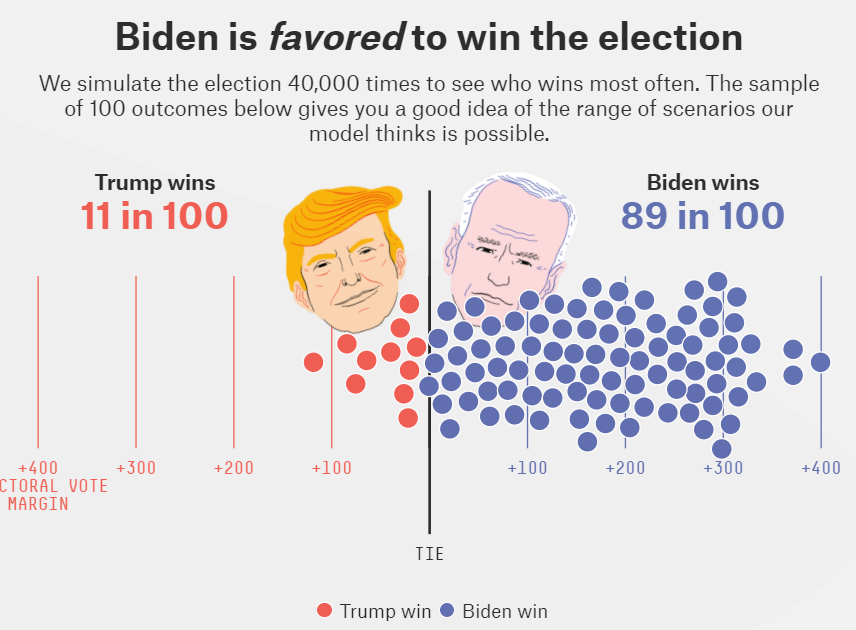Its a huge week with the US election on Tuesday and perhaps counting to continue for many days after if its a close race.
You'll be familiar with this sort of election modelling, this via 538 (ps this is the latest):

How useful is this? Not very says this piece in the NYT which outlines some of the many problems with using polls and modelling. Its worth a read if you are interested, but here are some of the points (this is in very brief - bolding is mine):
- many models use polls from the beginning of the modern primary era in 1972, there are a mere 12 examples of past presidential elections with dependable polling data. That means there are only 12 chances to test assumptions and outcomes
- unlike weather events, presidential elections are not genuine “repeat” events. Facebook didn’t play a major role in elections until probably 2012. Twitter, without which Mr. Trump thinks he might not have won, wasn’t even founded until 2006.
- In its final forecast in 2016, FiveThirtyEight gave Hillary Clinton a 71.4 percent chance of victory. (The digit after the decimal providing an aura of faux precision, as if we could distinguish 71.4 percent from 71.5 percent.) All that figure really said was that Mrs. Clinton had a roughly one-in-three chance of losing, something that did not get across to most people who saw a big number.



